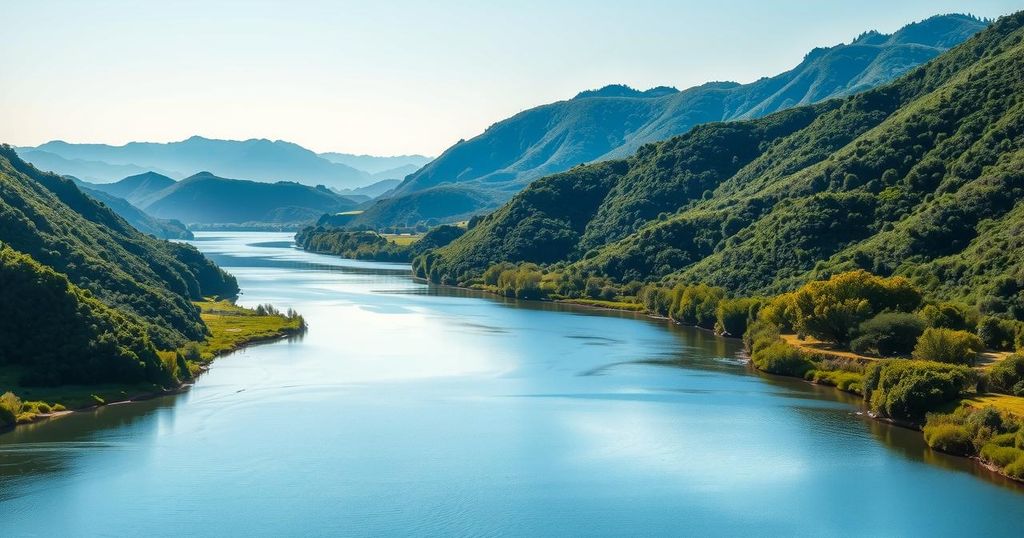Argentina and Uruguay Collaborate to Prevent Green Hydrogen Conflicts
Rogelio Frigerio and Yamandú Orsi have pledged to prevent conflicts over the proposed green hydrogen plant in Paysandú. Their dialogue aims to ensure that the project complements local tourism while addressing environmental concerns. They also committed to regional cooperation on various projects to enhance economic integration.
In a recent meeting, Rogelio Frigerio, the governor of Entre Ríos, and Yamandú Orsi, the president of Uruguay, agreed on measures to prevent disputes regarding a proposed green hydrogen plant in Paysandú. They emphasized the importance of maintaining dialogue to ensure the Uruguay River serves as a point of unity rather than division between the two nations.
Both leaders voiced their commitment to avoid a crisis similar to the one experienced in the early 2000s over the Botnia pulp mill in Fray Bentos. This meeting, held in Montevideo, aimed to address concerns regarding the proposed HIF Global plant that will be located on the Uruguayan bank, opposite Colón in Entre Ríos. Local stakeholders have raised issues about the environmental implications and potential effects on the tourism sector, which is vital for the community.
In an effort to ease these concerns, Frigerio noted the necessity of ensuring that the green hydrogen initiative does not undermine Colón’s tourism-driven economy. Orsi responded positively, committing to discussions with all relevant parties to facilitate a cooperative dialogue.
Uruguayan Foreign Minister Mario Lubetkin highlighted the significance of a cooperative relationship between Argentina and Uruguay, urging that past blockades, such as those affecting border crossings during the Botnia pulp mill conflict, never happen again. Both governments pledged that the development of the new plant would adhere to principles of complementarity, sustainable growth, and environmental considerations.
Frigerio and Orsi also agreed to promote collaborative regional projects, which include dredging the Uruguay River for improved navigability, projecting a deep-water port in Soriano, and enhancing the waterway for better trade efficiency. These initiatives are expected to bolster trade connections within Paraguay, northern Argentina, and the Uruguayan coast, thereby fostering economic integration between Argentina and Uruguay.
The collaborative discussion between Argentina and Uruguay emphasizes a commitment to resolving issues related to the proposed green hydrogen plant in Paysandú through open dialogue. The leaders’ resolve to learn from past conflicts signifies a proactive approach to regional cooperation, enhancing economic integration while respecting local concerns about environmental impact and tourism. This partnership may set a precedent for future engagements between the two nations.
Original Source: hydrogen-central.com




Post Comment